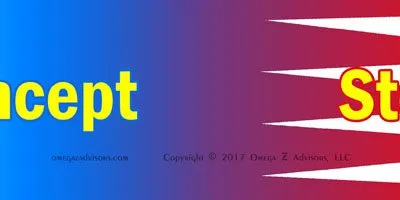The Two Broad Types of Learning Methods People Use
Posted on25 Sep 2017
Comments0
Learning to look at problems as a journey from abstract to practical has helped me much. Since learning is a problem, it... Read More
Beauty as Power (Pt 3): Appreciation
Posted on19 May 2011
Tagsamputation, antiques, appreciation, beauty, Beauty as Power Series, gangrene, Hang 'Em High, health, heirlooms, learn, maggot, Maggot Therapy, medical, memorabilia, men, nurses, subjective, teach, Tom Sawyer, Tom Sawyer fence painting, Witness, women
Comments0
My Beauty as Power posts have generated emails regarding teaching what beauty is. Unfortunately, even though beauty is extremely subjective, we’re often... Read More
Change Management – Tactic #5: Request Demonstration
Posted on14 Apr 2011
TagsAtul Gawande, change, change management, Change Management Tips Series, prioritization, teach, teachable moment, The Hot Spotters, The New Yorker, time, training
Comments0
The Hot Spotters, by Atul Gawande in the January 24, 2011 issue of The New Yorker spoke primarily to minimizing medical costs... Read More
Change Management – Tactic #4: Repetitiveness
The Hot Spotters, by Atul Gawande in the January 24, 2011 issue of The New Yorker spoke primarily to minimizing medical costs... Read More
The Ability to Praise is a Function of Personality
Posted on18 Oct 2010
Tagsapproaches, motivation, mentoring, McKinsey & Company, management, leadership, intuition, intrinsic, extrovert, extrinsic, emotions, compliments, compensation, networking, teach, sensitivity, rewards, praise, Personality
Comments0
One of the major characteristics of intuitive approaches for leadership is the dominance of intrinsic rewards over extrinsic ones. The demarcation between... Read More
What Consumer Psychology Teaches Us About Problem Solving
Posted on27 Sep 2010
TagsMichael I. Norton, decisions, drugs, emotions, expectations, goal setting, Harvard Business Review, How Concepts Affect Consumption, intuition, keeping up with the Joneses, low-cost, Dan Ariely, objective, peer pressure, people, price, problem solving, psychology, rationale, rewards, teach, anticipatory, beverages, brain, business, buying habits, change, cognition, competitive, consumer, cost-benefit
Comments0
We often anticipate and rationalize people’s decisions using a cost-benefit analysis. This perspective frequently leads to erroneous conclusions and restricts problem-solving capabilities.... Read More
The Words “Feel” and “Think” as Tools
Intuitive approaches require the identification of emotional drivers in influencing and problem solving. They generally work better than cognitive approaches because emotional... Read More


